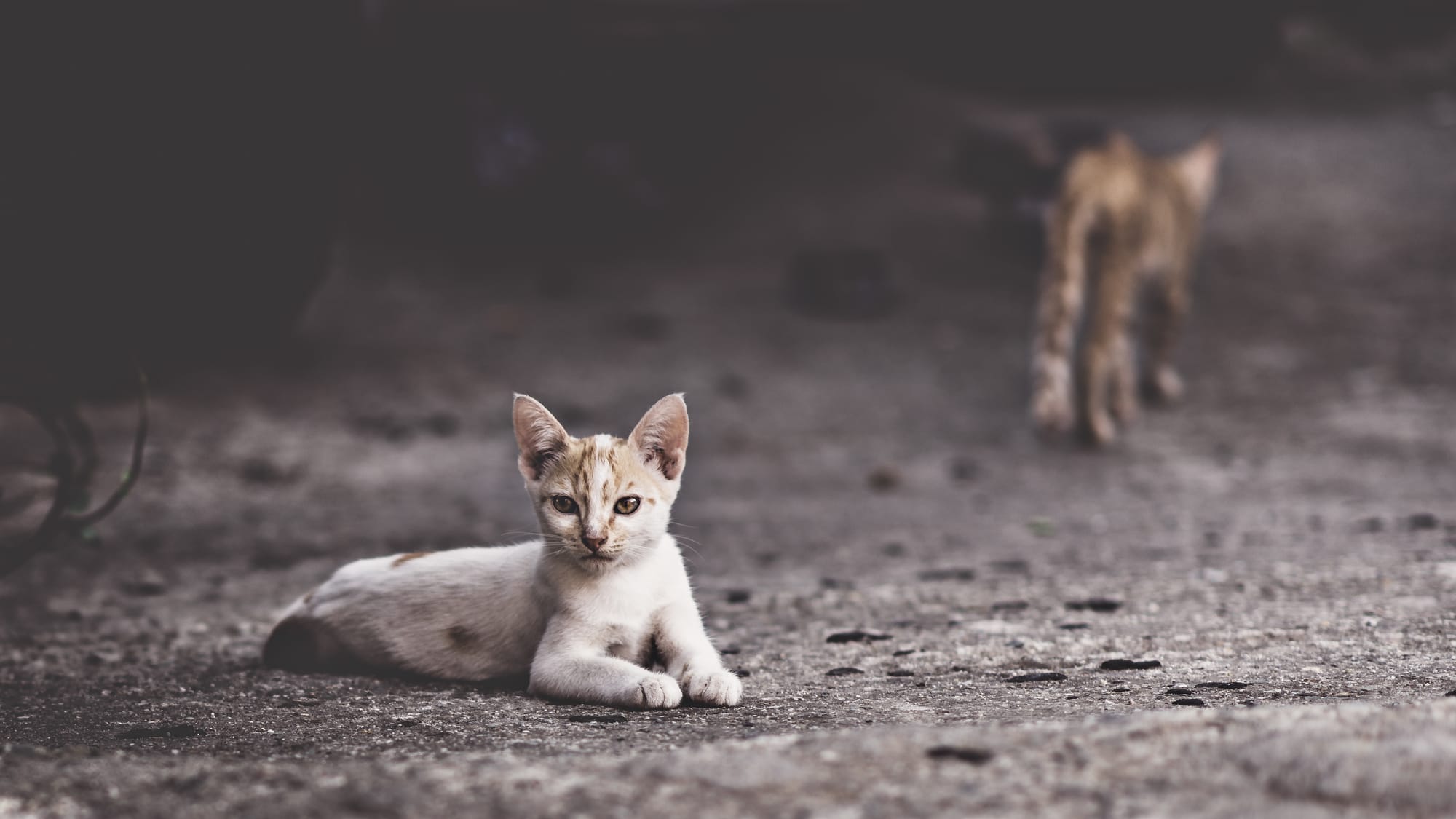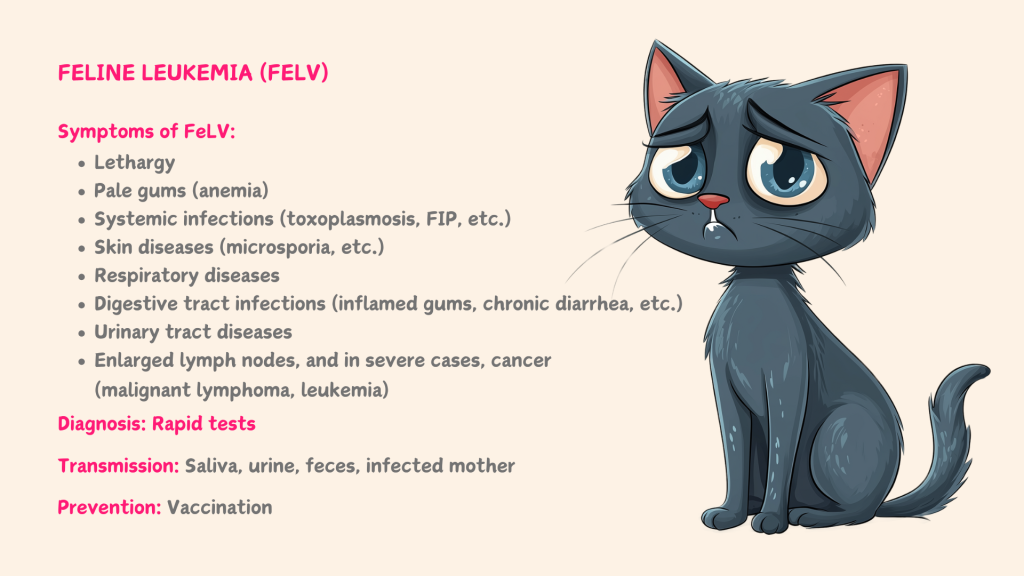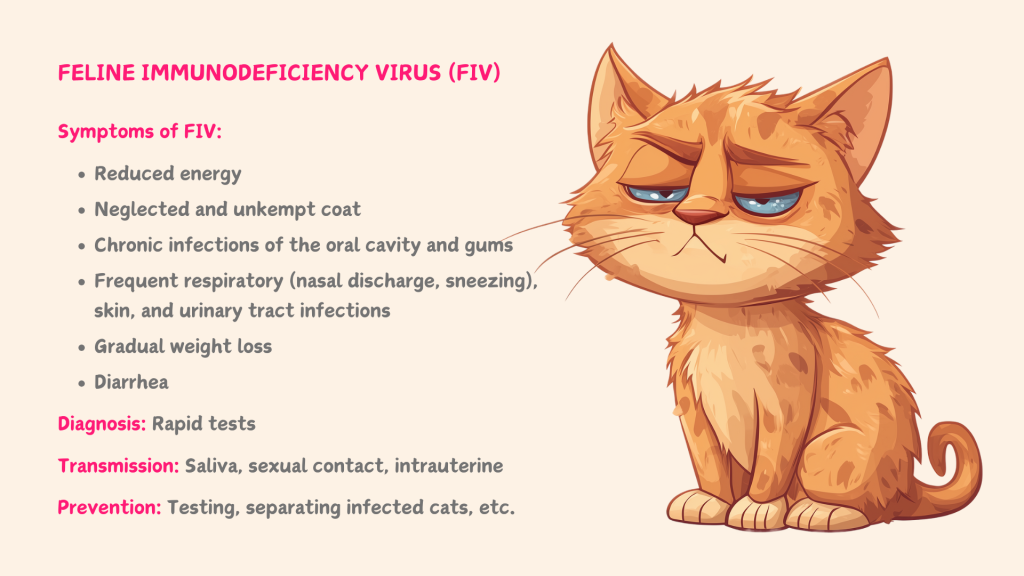Protection against both diseases starts with basic measures:
- Testing: Every new cat should be tested for FeLV and FIV before coming into contact with other cats.
- Vaccination: If your cat goes outdoors or lives with other cats, vaccination against FeLV is recommended.
- Indoor environment: Keeping your cat indoors significantly reduces the risk of FIV infection, as it avoids contact with infected cats.



